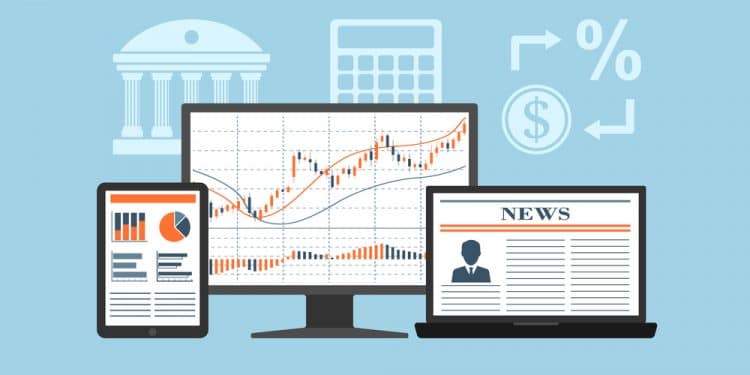Trading news involves the use of fundamental analysis for potential swing, day, or scalp trades. Some economic events cause a significant change in the price and reversals in the previous momentum/trend, while others of medium or low importance only provoke a slight effect. Participants sometimes use fundamentals to notice an asset’s overall direction and then employ technicals to confirm their idea. The complete process is simple yet challenging, where the tough part is assessing the financials, which is the point at which most fail.
Types of fundamental traders
Depending on the type of asset you are trading, there may be a difference in the important events you are watching to capitalize on. However, a few strategies may suit both long and short-term traders.
- News scalpers. They are ready to jump in any highly volatile three-star news event within five minutes of its release. For example, some participants trade NFP depending on the outcome of jobs report in the US, which shakes EUR/USD by an average of 10 pips.
- Swing traders. Most market participants who thrive on fundamentals are swing and position traders. They scan out overbought and undervalued assets and ride them out until the end. Important economic events take days or months to reach the desired target.
- Day trader. You won’t see anyone trying to day trade news events. The number of day traders utilizing only fundamentals is minimal to zero.
Beyond this, some traders try and place buy/sell stops around highly volatile news proceedings. The reason behind the idea is to capture a single swift movement ranging anywhere between 10 to 100 pips. This type of action leads to detrimental results in beginners as they fail to realize slippage and volatility. Sometimes the market shows a mixed reaction to an economic event where the move is not one-sided. Instead, it’s a random set of up and down fluctuations.
Important fundamental events
Important economic events are bread and butter for fundamental traders. Currencies and stocks have different sets of news, which may bring significant market changes. The major ones for forex are as follows:
- Interest rates by central banks
- Gross Domestic Product GDP
- Consumer Price Index CPI
- Unemployment rate
- FOMC meeting
Whereas for stocks, they are:
- Earnings report
- Cash flow
- Dividend yield
- Profit/loss statement
- Market capitalization
What are the benefits of trading fundamentals?
Fundamental trading posses the following benefits for traders:
- Long-term investments using economic events prove much more fruitful than technicals, indicators, and automated trading software.
- The consistent growth of capital is ensured.
- Drawdowns on your account are under better check and balance when you swing trade.
- You can develop a better understanding of currencies, stocks, and companies as you conclude extensive research for finding setups.
- Securities move as a collective group, and it is easier to trade stocks that lie in the same basket.
What are the demerits of trading fundamentals?
Fundamental trading posses the following demerits for traders:
- Understanding important news events and their effect on the market can be a challenging task for beginners. It may take years before one fully comprehends them.
- Even a slight change in a company’s outlook can cause the momentum to reverse at any second.
- It may take a lot of time for you to analyze Wall Street. You may also need additional tools to know your entry points.
- Manipulation is present in a lot of areas. Companies give out fake information where the current outlook might be going in deficit, creating confusion for traders.
Differences between retail and professional traders in fundamental trading
Professional traders do have the edge over retailers when you consider execution speeds, platform tools, institutional spreads, and immediate access to news. They also got other top mentors and gurus on the trading floor to help them out in case of trouble.
Market participants who analyze their positions from home have more freedom as they are not bound to sit on the desk all day. They are also free to utilize their own set of risk management and strategies. On the other hand, their overall account equity is much smaller.
How can beginners get an edge in trading economic events?
Beginners have to go through three different learning curves, i.e., losing, breakeven, and winning. Many do not even cross the losing portion and quit in the initial stages after liquidating lots of money. It is important to note that drawdowns are beneficial as they can help one realize their mistakes.
Keeping a copy of all the economic events and writing down all the volatility effects helps build consistency. Top analysts share their predictions for undervalued, best-performing assets periodically. While it may look easy to copy their ideas having your own great plan is the better option.
It may also help beginners to include a few technicals to time their entry and exit. An upcoming potential reverse after a significant fundamental can be spotted using bullish bars on lower time frames. Having the right guru can improve overall results, but one should keep in mind that gains are only available for those who put in the extra effort.
End of the line
It may seem like trading fundamentals is a look of hard work. Well, for some, it might be; however, consistency in trading is only developed after years of struggle and journaling. Some traders do not find economics to suit their psychology and style. Such participants may choose various other methodologies in the industry.




